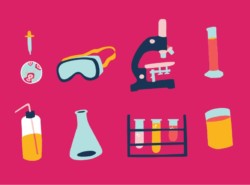
Targeting epigenetic changes to overcome endocrine treatment resistance in breast cancer
Published: 05/9/21 8:21 AM

Joanna Achinger-Kawecka
Project Description: Patients with estrogen receptor positive (ER+) breast cancer receive hormonal endocrine therapy. However, a proportion of ER+ breast cancers fail to respond due to endocrine resistance. This new study, led by Dr Joanna Achinger-Kawecka from the Garvan Institute of Medical Research, will investigate how epigenetics and epigenetic therapies influence endocrine resistance in ER+ breast cancer.
Why This Work is Needed: Endocrine-resistant breast cancer is one of the most challenging types of breast cancer to treat. Treatment options for patients with endocrine-resistant breast cancer are limited, and new treatment alternatives are urgently needed. Whilst epigenetic therapies have been used for blood cancers, they are not yet used in solid tumours (such as breast cancer), and their effectiveness in endocrine-resistant breast cancer has not yet been studied.
Expected Outcomes: This work will provide a better understanding of how epigenetic changes affect endocrine resistance, and contribute to the development of new epigenetic therapies for breast cancer.
Project Details
Patients with estrogen receptor positive (ER+) breast cancer are treated with hormonal endocrine therapy. However, a proportion of ER+ breast cancers do not respond due to endocrine resistance. Unfortunately, treatment options for patients with endocrine resistance are very limited, and new treatment alternatives are urgently needed.
New data, including from Dr Achinger-Kawecka and her team, suggest that endocrine resistance may be caused by epigenetic changes. Epigenetics involves chemical modification of the DNA but does not change the genetic sequence. Dr Achinger-Kawecka’s previous work indicates that epigenetic changes can alter the three-dimensional structure of DNA in breast cancer cells. This affects how the estrogen receptor binds to the DNA in the cancer cells, which may contribute to development of endocrine resistance.
The team will now investigate whether it is possible to reverse these DNA structural changes using epigenetic therapies to improve endocrine treatment response. The study will use cutting edge laboratory techniques and preclinical breast cancer models to see how epigenetic treatments work at the individual cell level. For the first time, this will enable the researchers to study how DNA structure changes due to epigenetic treatment and how these changes differ between individual cells within the same tumour.
Ultimately, the project will provide a better understanding of how epigenetics influence endocrine resistance in breast cancer. This will potentially lead to new personalised treatment options, improving outcomes for those with endocrine-resistant tumours.